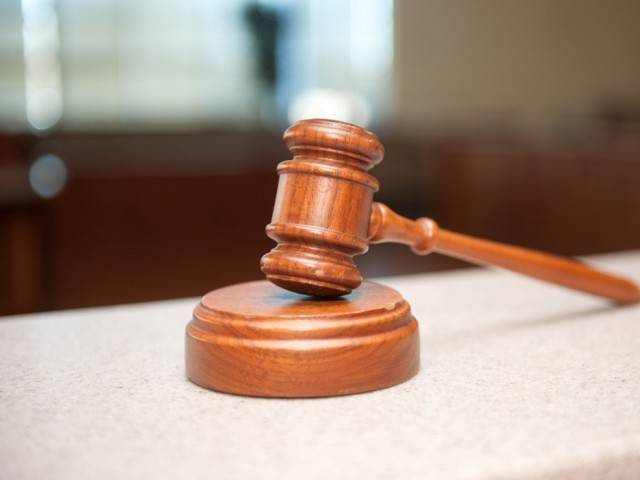NAB rules prevent accused from going to court for bail
Section 9(b) of NAO ousts jurisdiction of all courts to grant bail to any person accused of corruption

PHOTO: FILE
Section 9(b) of the National Accountability Ordinance, 1999 ousts the jurisdiction of all courts to grant bail to any person accused of committing an offence under the said ordinance. It states: "All offences under this ordinance shall be non-bailable and notwithstanding anything contained in sections 426, 491, 497, 498 and 561-A or any other provision of the code, or any other law for the time being in force no court shall have jurisdiction to grant bail to any person accused of any offence under this ordinance."
However, soon after the promulgation of NAB law, the Supreme Court in the Asfand Yar Wali case allowed high court to grant bail to the accused persons in 'extra ordinary circumstances' and hardship cases.
NAB okays inquiries against Khursheed Shah, Mehtab Abbasi
In the recent past, the apex court in its judgements reiterated that bail could not be granted over delay in trial.
In October last year, a five-judge lager bench of the apex court while hearing Talal Ishaq case had proposed legislature for suitable amendment to give bail option to the accountability court.
Authoring judgement in the Talal Ishaq case, the then member of the larger bench and now Chief Justice of Pakistan Asif Saeed Khosa noted that in the changed scenario the legislature might consider amending the NAO appropriately so as to enable an accused person to apply for his bail before the relevant accountability court in the first instance.
The judgement also said that the superior courts had always felt difficulty in adjusting the requirements of "without lawful authority" and "of no legal effect" relevant to a writ of certiorari (Article 199(1)(a)(ii) of the Constitution) with the requirements of bail provided in Section 497, CrPC.
Zardari arrested in fake accounts case
However, despite the passage of one year, the federal government did not amend NAB law for authorising accountability courts to grant bails to accused persons.
A legal debate started over the prevailing situation wherein many political leaders of opposition parties were behind bars at the investigation stage and they were not applying for bail. Even two female politicians Maryam Nawaz and Faryal Talpur were in jail at the stage of investigation. Arrest of female political leaders at investigation stage was something extraordinary.
Legal experts believed that there were two reasons for not approaching the courts against their arrest. Firstly as it was stated above that there was a statutory prohibition in NAB law to grant bail.
Secondly, the apex court in the recent past had set strict parameters to grant bail.
It is also said that political leaders were losing trust in courts to obtain relief in NAB cases.
Former DG Parks remanded to NAB custody
A senior lawyer revealed that due to setting strict parameters of granting bail, the accused persons were preferring to settle their issues with NAB and were reluctant to approach the superior courts which was a graurantor of fundamental rights of citizens.
Legal experts believed that bail should be granted in white collar crime cases at the stage of investigation due to two reasons.
Firstly, everyone is innocent until proven guilty. They referred to the example of former president Asif Ali Zardari who remained in jail for eight years without conviction.
Secondly, in the absence of bail, purpose of right of the accused person's defence was being seriously jeaporised. In white collar crime cases, there was a need to place documents for defence before the investigation team. When the accused person would be behind bars then how he would furnish his defence.
Trial court sends Maryam, cousin to Camp Jail
Azam Nazeer Tarar, who is a defence counsel in many NAB cases, including the ones against the Sharif family members, believed that there were several reasons for not approaching the courts to obtain relief.
He admitted that there was the factor of mistrusting courts. Likewise, strict parameters for bail had been laid down by the apex court in the recent past which was discouraging accused persons from applying for bail before superior courts. Likewise, he said that there was practice all over the world that the accused persons were not being arrested in white collar crime cases.


















COMMENTS
Comments are moderated and generally will be posted if they are on-topic and not abusive.
For more information, please see our Comments FAQ